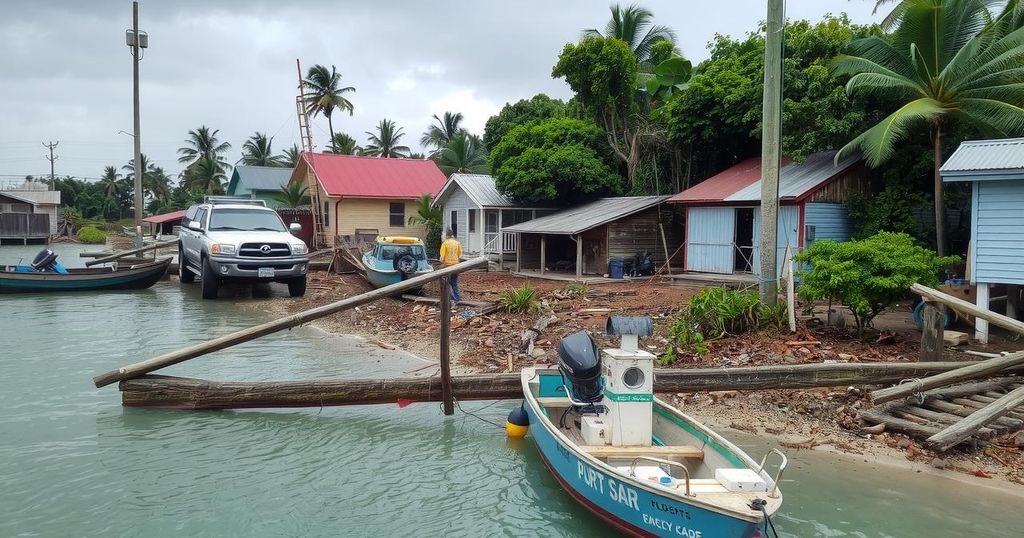Prime Minister Narendra Modi expressed condolences for the victims of Cyclone Chido, which led to 22 fatalities and over 1,400 injuries in Mayotte. He affirmed India’s readiness to assist. The cyclone, with winds reaching 200 km/h, devastated 70% of the territory’s population, prompting a nighttime curfew to ensure safety and prevent looting. The cyclone’s impact extended to Mozambique, raising alarms about the increasing intensity of cyclones due to climate change.
Prime Minister Narendra Modi expressed profound sorrow regarding the devastation inflicted by Cyclone Chido on Mayotte, a French overseas territory situated near Madagascar. Winds reaching up to 200 km/h resulted in significant destruction, claiming 22 lives and injuring over 1,400 individuals. Modi stated, “Deeply saddened by the devastation caused by Cyclone Chido in Mayotte. My thoughts and prayers are with the victims and their families. India stands in solidarity with France and is ready to extend all possible assistance.”
Following the cyclone’s impact, French Interior Minister Bruno Retailleau reported extensive destruction in Mayotte, with the calamity affecting 70% of the local population. He disclosed that additional paramilitary personnel would be deployed to bolster the ongoing relief efforts. In response to security concerns, the French government has instituted a nighttime curfew from 10:00 PM to 4:00 AM to deter looting and prevent disease outbreaks.
In addition to Mayotte, neighboring Mozambique has also suffered from the cyclone, experiencing casualties of at least 34 individuals and more than 300 injuries due to heavy rainfall and flooding. Experts attribute the escalation in cyclone intensity to climate change, warning of the potential for further global disasters as ocean temperatures rise.
Cyclone Chido, the most powerful storm to strike the Mayotte archipelago in over nine decades, caused unprecedented destruction with wind speeds that devastated infrastructure and severely impacted the local community. The international response has been immediate, with countries like India offering assistance as the territory grapples with rescue and relief operations. The implications of climate change continue to be highlighted as experts connect the recent uptick in cyclone intensity to warming ocean levels, raising concerns about future weather events. Moreover, the socioeconomic conditions in Mayotte, where a significant portion of the population lives in poverty without adequate housing, exacerbate the challenges faced during such natural disasters. The French government’s efforts to restore water services and provide food and other aid are crucial in supporting the affected residents.
In summary, Cyclone Chido has wreaked havoc on Mayotte, leaving behind a tragic human toll and necessitating immediate humanitarian responses. International cooperation, as demonstrated by India’s offer of assistance, is paramount in addressing the needs of the affected populations. The disaster not only reflects the urgent need for effective disaster management but also emphasizes the broader implications of climate change, urging global stakeholders to take significant action to mitigate its effects. As the impacted regions begin the road to recovery, solidarity and support from the international community will play a critical role in rebuilding lives and infrastructure.
Original Source: www.hindustantimes.com






